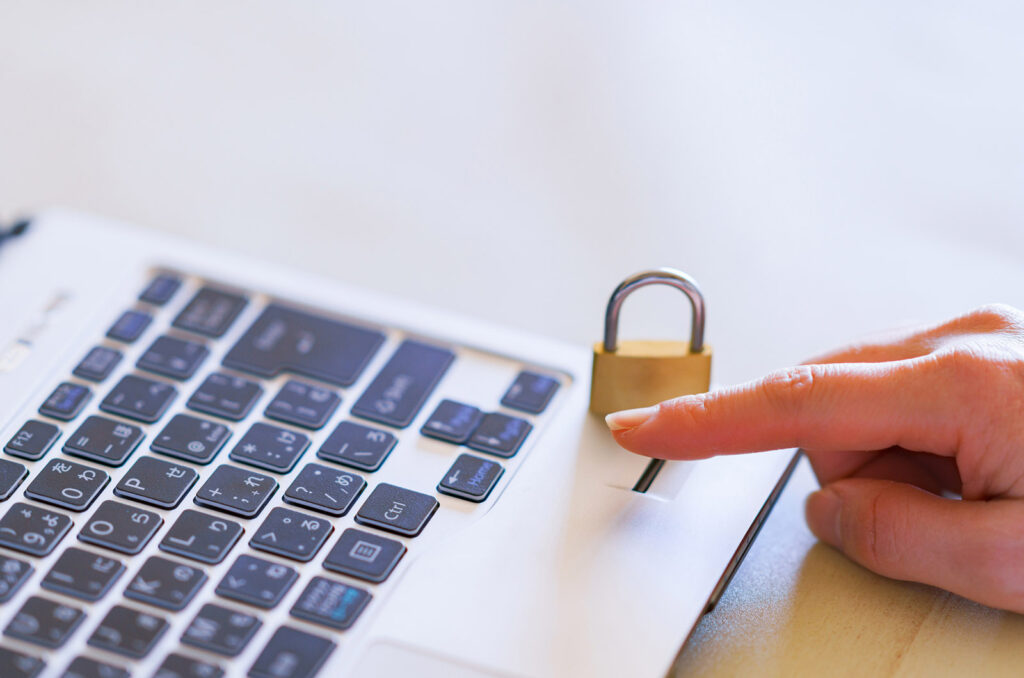Remote and hybrid working has brought a lot of flexibility and convenience to our working lives. However, it has also introduced new challenges, especially when it comes to cyber security. Below, are some essential tips to help you stay secure while working from home.

Keep your software up-to-date
One of the simplest yet most effective ways to protect yourself is to keep your software updated. Software updates usually include a number of security patches that fix vulnerabilities. Ignoring these updates could be leaving your computer open to attacks. Make sure your operating system, antivirus, and all applications are set to update automatically. It’s a quick step that can make a big difference.
Strong passwords
Passwords are your first line of defence. Using strong, unique passwords for each of your accounts can help prevent hackers from gaining access. A strong password is typically at least 12 characters long and includes a mix of letters, numbers, and symbols. Avoid using information like your date of birth or your name, as this is easy to guess. For added security, consider using a password manager. It can generate and store complex passwords for you, so you don’t have to remember them all.
Phishing scams
Phishing scams are designed to trick you into giving away your personal information. They often come in the form of emails or messages that appear to be from a legitimate source, like your bank or a trusted company. These messages might ask you to click on a link or download an attachment. Be very cautious about clicking on links or downloading files from unknown sources. If something seems suspicious, double-check the sender’s email address and look for signs of phishing, like poor grammar or urgent language.
Use a virtual private network (VPN)
A VPN is a tool that can help protect your online privacy by applying encryption to your internet connection. When you’re using a VPN, your data is sent through a secure tunnel, making it much harder for hackers to intercept. This is especially important when you’re using public Wi-Fi, which is often less secure. Many firms provide VPN access for their team, but if yours doesn’t, there are plenty of reliable services available for personal use.
Secure your home network
Your home Wi-Fi network can be a potential entry point for hackers. Make sure your router is secured with a strong password and uses WPA3 encryption. Always change any default passwords, as these are often easy to guess. It’s also a good idea to change your network’s SSID (the name that appears when you search for Wi-Fi networks) to something unique.
Enable two-factor authentication
Two-factor authentication (2FA) provides an additional layer of security to your accounts. With 2FA enabled, you’ll need to provide a second piece of information (like a code sent to your phone) in addition to your password when logging in. This makes it much harder for someone to access your account, even if they have your password.
Staying secure while working remotely doesn’t have to be complicated. By following these simple tips, you can protect yourself and your company from cyber threats. Remember, a little effort goes a long way in keeping your digital world safe.

